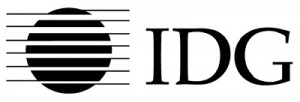IDG Moving Into Programmatic: How B2B Publishers Are Also Embracing Real-Time Technology
by Ciaran O'Kane on 4th Dec 2012 in News


IDG UK (part of the International Data Group), the UK's leading technology publisher with publications such as PC Advisor, Computerworld and Macworld has just announced a strategic partnership with PubMatic, which will see them open their assets to programmatic demand for the first time. The move should be seen as a positive for an industry that has been subjected to a growing sense of negativity recently, as IDG is not a volume business with mass amounts of remnant/unsold. Interestingly, the relationship with PubMatic seems to reflect a more strategic use of the technology and tools at a publisher’s disposal.
Data as a means to enabling strategy
IDG feel that data empowers them to make more informed decisions around their monetisation strategies. The data that PubMatic fuses in its data management platform (which is housed in its core SSP) enables it to take back control. Kit Gould, CEO of IDG UK notes: “With the right controls, right people and technology monitoring who is trying to buy your inventory and at what price, you can start to reclaim control.”
IDG (being a technology publisher) has a higher than average sell-through rate. Based on Gould’s commentary, it plans to use real-time bidding patterns and data as a means to not only make more informed real-time based monetisation decisions, but also adjust their direct sales strategy. Aside from enabling IDG to run non-endemic demand on their sites, it also enables them to learn about which audiences could be packaged, profiled and sold to non-B2B and B2C core demand sources.
Holistic view of every impression
IDG's partnership with PubMatic gives the B2B publisher a solution that sits above the adserver. It monitors all ad calls and enables holistic yield management across multiple devices, including Mobile. This not only helps to lift overall eCPMs for IDG (or indeed any publisher executing this strategy), but it also gives IDG a better sense of market pricing competitiveness.
It foresees the ability to use the data as a means of increasing direct sales rate cards on specific inventory sets appended with audience data. The only challenge will be how consistent and reliable the bidding patterns will be to make decisions around direct sales pricing floors. IDG are looking to invest sufficient resources to leverage the data being made available to the publisher across its owned and operated sites.
Packaging of data assets and audience extension
Earlier this year, IDG embarked on a significant project that enabled them to leverage the vast first-party data assets it owns and understands about its highly verticalised audiences. This recent announcement with PubMatic will allow IDG to be in complete control over how these audiences are activated across owned and operated sources of inventory, and also how it extends them across other inventory sources.
Maintaining this sense of control was clearly of significant importance to IDG. “I’ve heard selling data is like giving up your virginity,” said Gould, “you can only give it away once. What's really important to us is making sure we remain the gatekeepers of our data. We get to define the audience, based on our knowledge of tech buyers, how they consume media, and our ability to define where someone is in the buying cycle and then serve the marketing messages for our clients to that right person at the right time, in the right place.”
It would be a fair assessment to suggest IDG will not be looking to monetise its audiences directly with trading desks, a decision that is doubtlessly driven by both commercial opportunity and the efficacy of unbundling data in this way. This could change of course, but the signs point strongly to the fact there is more value for IDG and advertiser clients by bundling media and data together.
IDG and the publisher trading desk opportunity
In a follow-up piece, ExchangeWire will be discussing with IDG UK its plans to roll out its publisher trading desk. While this announcement with PubMatic does not completely serve these ambitions, this initial step into programmatic and automation should be viewed by all constituents as a positive for the industry. A super premium technology publishing group, with finite supply and high sell-through rates, is looking to the future and sees programmatic technologies as being central to this. Come 2013, we may finally put to bed the notion that automation only drives value on the "remnant" part of the publisher business.








Follow ExchangeWire